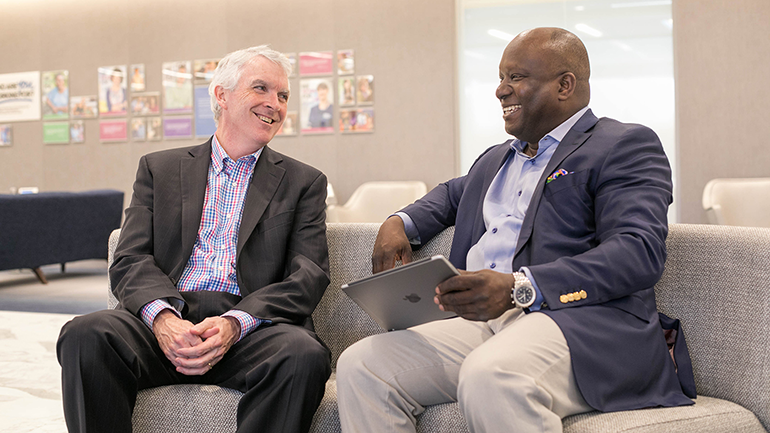When it comes to choosing industry partners, Bristol Myers Squibb prioritizes long-term, reciprocal relationships that will ultimately enhance the pipeline with the most promising areas of science. For example, one of the organization’s first clinical oncology partnerships with Medarex – a pioneer in antibody engineering research – led to the eventual acquisition of the company, and subsequently, the approval of the first checkpoint inhibitors. The partnership-turned-acquisition model allowed both companies to collaborate, build key capabilities and evolve the science. The I-O foundation established through Medarex continues today, as Bristol Myers Squibb works to engineer antibodies that may enhance the immune system’s ability to attack tumor cells.
“The model we employed with Medarex fundamentally shifted our approach to business development,” said Paul Biondi, head of Business Development at Bristol Myers Squibb. “We tend to focus on building strategic relationships with companies in the early phases of research, so we can all benefit from working together. Recent partnerships with Nektar, IFM and Five Prime are excellent examples of how we continue to partner with industry leaders to explore emerging areas of science and leverage our collective capabilities for patients.”
Precision Partnerships
The commitment to collaboration at Bristol Myers Squibb extends beyond the assets in the pipeline. Partnerships with big data, diagnostic and technology companies enhance Bristol Myers Squibb’s leading translational capabilities and offer complementary perspectives to help solve challenges in clinical research. As the company works to advance precision I-O, collaborations with companies like Flatiron Health and Foundation Medicine will continue to play a central role in the quest to deliver new medicines and diagnostics.
“The future of cancer treatment is becoming more complex as we work to treat patients based on the biology of their tumor,” said Biondi. “There are multiple stakeholders involved in making precision I-O a reality. At the end of the day, we can work smarter, better and faster, if we work together.”
Oncology is just one piece of the puzzle. Across the portfolio, Bristol Myers Squibb works with partners and collaborators to enhance the pipeline and explore biomarkers for autoimmune diseases, cardiovascular diseases and fibrosis as well. To learn more about partnering, visit: https://www.bms.com/researchers-and-partners/partnering.html.






